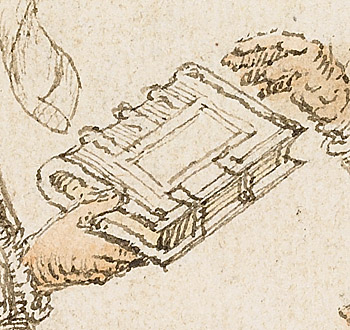Seege or Batayle of Troye
General Information
Plot Summary

After a short prologue, summarising the Trojan War and citing a putative source (Dares the Phrygian), the poet tells of a Greek knight, Peleus, who determines to win the Golden Fleece from (uniquely in this version of the story) the King of Troy.
Jason, Peleus’ nephew, and the Argonauts set sail to Troy in quest of the Fleece. The Trojan king Laomedon rebuffs them and they return to Greece offended and empty-handed. A second expedition is undertaken. The Greeks destroy Troy (battle number one), abduct Laomedon’s daughter Hesione along with the Fleece, and then return home to celebrate their victory.
Priam, Laomedon’s heir, goes to Troy, taking with him his three sons, Hector, Troilus, and Paris (who has been raised incognito as a swineheard). He rebuilds the city and sends a party of Trojans to Greece to demand Hesione’s return. The Trojans are rebuffed and return home offended and empty-handed. The Trojans resolve to launch a military attack on the Greeks, and Paris, recounting his dream-like judgement of four fairy women, offers himself as the expedition’s leader. Paris assaults the citadel of the Greek king Menelaus and abducts his wife, Helen (battle number two). The Trojans return home and celebrate their victory with Paris’s marriage to Helen.
Menelaus assembles an enormous Greek navy, sails to Troy and the siege begins. An initial Greek attack (battle number three) is matched by a Trojan retaliation (battle number four) and is followed by Hector’s emergence as a peerless champion (battle number five).
The Greeks, daunted by their indefatigable opponent, send for Achilles, who is found, disguised as a girl, in the court of Lycomedes (where he has impregnated the king’s daughter). His true identity is revealed, and Achilles hastens to Troy. He enters the fray and demonstrates his prowess (battle number six).
Hector and Achilles then meet face-to-face. Sorely wounded, Hector retreats, is distracted by a precious jewelled helmet, and is killed by Achilles as he attempts to retrieve it (battle number seven). Achilles visits Hector’s grave, catches sight of Polyxena and falls in love. He offers Priam peace in exchange for the girl but is unable to gain Menelaus’s consent. Achilles refuses to fight but is then persuaded to return to battle and kills Troilus (battle number eight). Tricked by Hecuba’s duplicitous offer of marriage to Polyxena, Achilles enters the Trojan temple and is killed by Paris and his warriors (battle number nine). Enraged, the Greeks kill Paris (battle number ten).
Priam attempts to rally the remaining Trojans while Antenor and Aeneas strike a deal with the Greeks to betray the city. The Greeks, led by Achilles’s son Pirrus, enter Troy freely and slay the remaining citizens, including Priam, Hecuba and Polyxena. Menelaus and Helen are reunited. The Greeks loot Troy and return home to celebrate their victory.
Manuscripts
Click a title below to search for all romances in that manuscript.